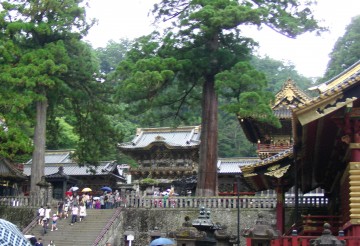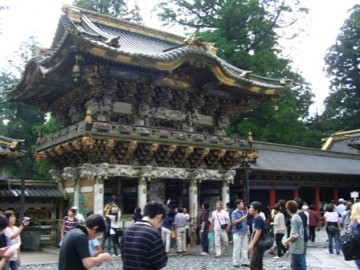20 December 2008
Film:"Nanking" Massacre committed by Japs
Last Sunday, I went to the public conference building in Tokyo. One room was rent by Japanese peace group named "No more Nanjing."
The purpose of the room renting was to show a very shocking Hollywood produced documentary film "Nanking" and hold the public hearing of the masscre survivor from Nanjing. Plus public speech by journalist of Japan's mainstream newspaper, The Asahi Shimbun.
The below is the preview of the film. The film was shown in the U.S. and China.
It was the first showing in Tokyo, Japan. Very first one in Japan was done in Fukuoka, Japan on 7 of December.
The film started with the speech of memoires of westerners who stayed in Nanjing during the occupation by the Japanese army.
The speeches are made by the actors who disguised as actual characters in that event.
In August 1937, Japanese army grounded on Shanghai and started invasion of China. They bombed Nanjing (Nanking) which was the capital of China at that time. In November the troops arrived in Nanjing and occupied the city. They looted, raped and killed Chinese citizens there.
The westerners set up the safety zone to protect Chinese. American college teacher, Minie Vautrin acted by Mariel Hemingway, Ernest Hemingway's grand daughter defended young women from rape by Japanese.
The actual footages, real talking of survivors and soldiers are also shown. The survivors talked about their rape experience or what happened in front of them such as their parents or brothers or sisters being murdered in front of them. The soldiers talked how and why they mass-murdered thousands of POW or innocent citizens and raped women.
There is not much new to me because I've got involved in this peace activity and learned the history of Sino-Japan war in 1930's.
It was cruel, our people in fact did terribles things to neighboring nations before WW2 ended.
The survivor who talked to the audience (approximately 200) in the conference room was the old Chinese woman who experience rape by Japanese soldier. She was raped and survived in the hell. But even after the war was over, she had to go through very hard time because her husband treated her so badly because she was found not virgin. She never could tell him why she was not. After the age of 80, she decided to speak up.
After her testimony, Japanese journalist, Mr. Yoichi Jomaru made a speech on the role of his company in the war. During the war time, especially embedded journalists were not allowed to report anything unfavourable to their troops, they had to act as PR section of the military. But the media themselves actively became backers of their troops. That exactly happens even in present time when freedom press is insured.
Some right wingers criticize me and other peace activists for revealing such unfavourable stories of Japan's history. I do not get along with them. I love my country. I am proud of being Japanese. That is why I am involved in this activity. By doing so, we can appeal to the world including Chinese people, we are no longer brutal like that in the film, we know the facts, so we do not do that again.
And we all wish for the world peace and happiness of all the people on the earth.
Response to Christopher's question:
Rape is crime in modern Japan and even before the war ended it was a crime in our terriorty or outside. What the troops did in China was against Geneve Convention and even the marshal law of the imperial army.
The comic you suggest is not popular in Japan but maybe among porno comic maniacs, not among ordinary comic fans.
30 November 2008
Reality Program "The Edwardian Country House"
That was DVD of the reality program broadcasted in U.K.
Ordinary people experience early 20th century life of rich family who owns a very big country house and their servants for 3 months.
They live exactly the same style as the old days wearing the same clothes.
The gap between the family and the servants was very obvious. The servants have to work all day long without day-off.
The family never know how hard their life is. That is like working poor of present days. They had work in such terrible condition with meager pay. Not only that, in those days there was no law to prohibite such slave-like treatment. Even if servants got sick, their masters can easily lay them off.
The other interesting thing is that how the relationship of Britons and colonial Indians in those days. It was imperialist time.
Great Britain colonized India. Indians seem to have had very hard time by British imperialism. But interesting thing is some Indian people admired British Empire. Some of the parliament members were Indian at that time.
Exploring old times is really fun thing. It is like doing time-travelling.
My interests in history inspired me to write some interesting novels such as below.
I am planning to write novel which a story takes place in 1930's Germany when Nazi came into power. A young Japanese woman and a Jewish man met in Berlin. They fell in love but Nazism got in their way. What do they do?
Or I may be writing a story that takes place in 1950's America. Young Japanese Fulbright exchange student rent a room in a middle class American couple. He was treated well by them. But the couple had some problems. He tried to help them out.
Or two young Japanese men came to London in late 19th century to study very sophisticated western science and culture. One was a big admirer of Western civilization and the other was very samurai-minded man who prided himself as Japanese but at the same time he thinks he should learn great things from the West for modernization of Japan. They met a British man who was Western supremacist who looked down upon other civilizations. They had to deal with him.
Wouldn't that be interesting?
21:43 Posted in Britain, Culture, Film | Permalink | Comments (2) | Tags: history, documentary
12 October 2008
Assassination of Neo-Nazi leader?
It is like movie "NIKITA."
Austrian Far Right Party leader Haider was killed by car accident. He drove the government's car.
Sounds odd, why such an important guy drives a car himself. He should have been in back seat of the car with his body guards and professional chauffer who drives the car.
Smells like conspiracy by some government. They thought this man is too dangerous for their country, or region.
Remember when Hitler emerged, no one could predict holocaust. Some feared but no one thought he could have done that far.
History repeats itself so someone had to fix it.
But the thing is even if you eliminate symbol of the problem. The cause of problem is not Haider. It is his supporters and the reason for the support.
Austria is a country where Adolf Hitler was born and raised.
Let's pay attention to it, indifference is the biggest cause of intolerance.
16:00 Posted in Deutschland, Politics | Permalink | Comments (0) | Tags: history, nazis
15 September 2008
Visited the Shrine for the Shogun's grave
On 14 of September, Sunday, I visited Japan's most famous shrine in Nikko city, which is 2 hour train ride from Tokyo.
It is called Nikko-Toshogu. The shrine was established for the grave of the Shogun, Tokugawa Ieyasu, who established Tokugawa dynasty in early 17th century. The dynasty established unified Japan. He placed Japan's capital in Tokyo, which was called Edo at that time.
The reason I went there is not just to enjoy the views of the shrine but to pray the Budha or enshrined spirits to protect Tokyo capital region. The shrine is said to be built to forever protect Tokyo capital region. Tokyo is now in dangerous period because the dangerous ship of barbarians are coming and to be anchored very soon. Read this article.
The views of the shrine was magnificient. I really enjoyed. A lot of foreign tourists were there. The decorations of the shrine's gate and walls are very artisitic. The statues of Budha, engraves, paintings, all satisfied my expectations. The shrines decorations are relatively flashy compared with typical shrines in Japan. But they are still Japanese and outcompete Chinese temples or old buildings. I really found another type of Japanese beauty.
Next to this shrine is third Shogun, Tokugawa Iemitsu's grave shrine. He is grandson of Ieyasu. Iemitsu in fact established foundamental systems and rules of the dynasty that ran 15 generations, more than 260 years such as seclusion, banning of Christianity and alternate year attendance for regional lords. Those things were done to prevent colonization by the West and separation of the country. He really was great Shogun. Interesting thing is he was known to be very gay Shogun. Although as Shogun, he could have many girls to sleep with, he never made any successor until middle age. He had gay relationship with his retainers. It was openly done because being gay was not conceived inmoral thing in those days. When he died, one samurai lord committed suicide because he was very loyal to him and had strong love relationship with Iemitsu. Well, that is how Japanese samurais were different from western knights.
The below is video clip of the visit on You Tube.
17:30 Posted in Culture, Travel | Permalink | Comments (0) | Tags: history, samurai, nuclear aircraft carrier







